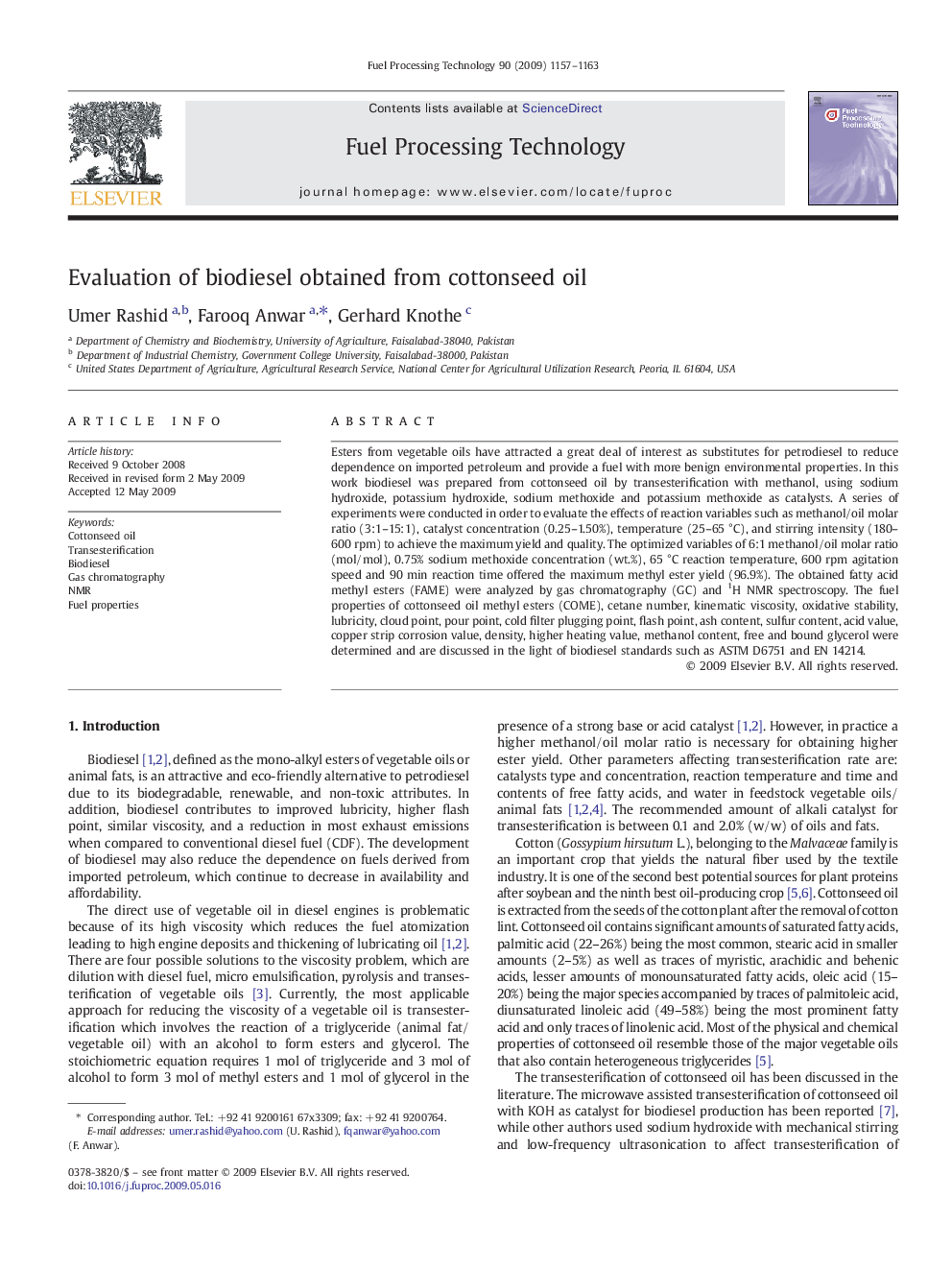| Article ID | Journal | Published Year | Pages | File Type |
|---|---|---|---|---|
| 211031 | Fuel Processing Technology | 2009 | 7 Pages |
Esters from vegetable oils have attracted a great deal of interest as substitutes for petrodiesel to reduce dependence on imported petroleum and provide a fuel with more benign environmental properties. In this work biodiesel was prepared from cottonseed oil by transesterification with methanol, using sodium hydroxide, potassium hydroxide, sodium methoxide and potassium methoxide as catalysts. A series of experiments were conducted in order to evaluate the effects of reaction variables such as methanol/oil molar ratio (3:1–15:1), catalyst concentration (0.25–1.50%), temperature (25–65 °C), and stirring intensity (180–600 rpm) to achieve the maximum yield and quality. The optimized variables of 6:1 methanol/oil molar ratio (mol/mol), 0.75% sodium methoxide concentration (wt.%), 65 °C reaction temperature, 600 rpm agitation speed and 90 min reaction time offered the maximum methyl ester yield (96.9%). The obtained fatty acid methyl esters (FAME) were analyzed by gas chromatography (GC) and 1H NMR spectroscopy. The fuel properties of cottonseed oil methyl esters (COME), cetane number, kinematic viscosity, oxidative stability, lubricity, cloud point, pour point, cold filter plugging point, flash point, ash content, sulfur content, acid value, copper strip corrosion value, density, higher heating value, methanol content, free and bound glycerol were determined and are discussed in the light of biodiesel standards such as ASTM D6751 and EN 14214.
